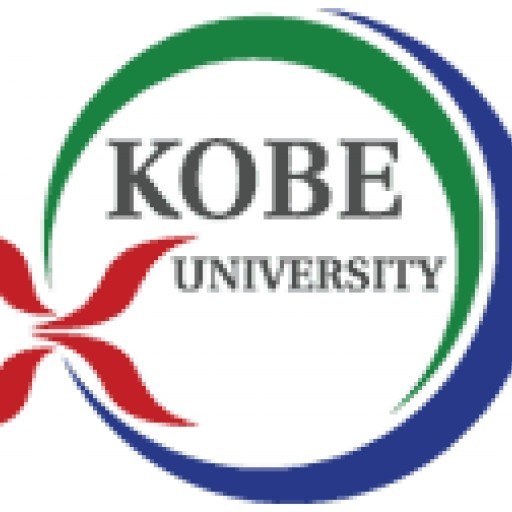Photos of university / #university_of_tsukuba
The Bioresource Science program at the University of Tsukuba offers an interdisciplinary curriculum designed to equip students with comprehensive knowledge and practical skills in the sustainable management and utilization of biological resources. This program emphasizes understanding the fundamental biological processes that underpin agriculture, forestry, fisheries, and environmental conservation, integrating fields such as biology, environmental science, food science, and engineering. Students will explore innovative methods for cultivating, processing, and conserving natural resources, with a focus on sustainable development and environmental preservation. The curriculum includes coursework in microbiology, plant and animal biology, ecology, biotechnology, and resource management, complemented by hands-on laboratory experiments and fieldwork. Participants are encouraged to develop critical thinking and problem-solving abilities to address global challenges related to food security, renewable energy, and biodiversity conservation. The program also emphasizes multidisciplinary research collaborations, fostering a global perspective through international exchange opportunities and joint research projects. Graduates will be well-prepared for careers in agriculture, environmental consultancy, resource management, research institutions, and industries related to bio-based products and services. With faculty dedicated to cutting-edge research and innovation, students benefit from a learning environment that promotes creativity, responsibility, and leadership in the responsible utilization of biological resources for a sustainable future.
- Course of Biological Sciences for Agrobiology and Forestry
- Course of Applied Biological Chemistry
- Course of Environmental Engineering
- Course of Economics and Sociology
- Nationality other than Japanese
- Completion of 12 years of school education outside Japan
- Submission of TOEFL or IELTS score (non-native speakers only)
The Bioresource Science program at the University of Tsukuba offers a variety of funding opportunities to support students throughout their academic journey. Prospective students can apply for scholarships provided by the university, which include merit-based scholarships aimed at rewarding academic excellence and research potential. These scholarships often cover tuition fees partially or in full and may also provide stipends for living expenses. Additionally, the university collaborates with governmental agencies and private foundations to offer grant programs specifically targeted at international students and researchers in the field of bioscience and bioresource management.
Students are encouraged to seek external funding from Japanese government scholarships, such as the MEXT (Ministry of Education, Culture, Sports, Science and Technology) Scholarship, which provides financial support to international students studying in Japanese universities. These scholarships typically include exemption from tuition fees and a monthly stipend to cover living costs. Many students also supplement their income through part-time work permitted under student visa regulations, such as teaching assistantships, research assistantships, or on-campus jobs, which not only provide financial support but also valuable professional experience.
The university has dedicated offices and advisors to assist students with the application process for various grants and scholarships. Furthermore, some departments within the university may have specific funding programs or research grants for students engaged in particular projects or research topics related to bioresource science. It is advisable for students to regularly check the university's official website and contact the program’s administrative office for up-to-date information on available funding options, application procedures, and eligibility criteria.
Overall, while funding opportunities are available, competition for these financial resources can be intense, and students are recommended to explore multiple sources of financial aid to ensure comprehensive financial support during their studies. The university fosters an environment where students are encouraged to seek all available and suitable funding options to lessen the financial burden and focus on their academic and research pursuits in bioresource science.
The Bioresource Science program at the University of Tsukuba is designed to equip students with comprehensive knowledge and practical skills in the field of biological resources. This interdisciplinary program integrates principles from biology, environmental science, and engineering to foster innovation in the sustainable use and management of natural resources. Students explore various aspects of plant, animal, and microbial resources, emphasizing their applications in food production, environmental conservation, and industrial processes. The curriculum includes coursework in biochemistry, biotechnology, ecology, and resource management, along with hands-on laboratory work and field research activities. The program aims to develop professionals capable of addressing global challenges such as food security, environmental sustainability, and renewable energy production. Collaboration with industry and research institutions provides students with real-world experience and networking opportunities. Graduates are prepared for careers in research, development, policy-making, and sustainable resource management within industries related to agriculture, forestry, fisheries, and environmental conservation. The program also encourages international cooperation and may offer exchange opportunities to broaden students' perspectives. Through a strong foundation in scientific principles and practical problem-solving skills, students become capable of contributing to advancements in bioresource technology and sustainable development efforts worldwide. The Bioresource Science program at the University of Tsukuba is committed to fostering innovative leaders who can integrate scientific research with practical applications for the benefit of society and the environment.







